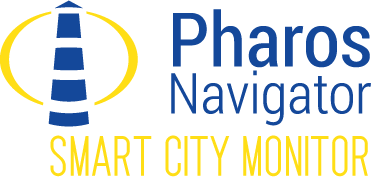Smart City project to pilot and prototype the Future
-
Understanding Smart Cities: Smart cities are places where technology is used to make life better for the people who live there. This includes things like managing traffic, saving energy, and making it easier for businesses to operate.
-
Challenges of Becoming Smart Cities: Figuring out how to make a city smart can be hard. It's not just about using the latest technology; it's also about understanding what the city needs, what benefits it can get, and dealing with the cost and complexity.
-
Taking Small Steps: Instead of trying to change everything at once, it's better to start small and learn along the way. This means trying out new ideas and technology in small parts of the city, seeing what works, and then expanding those ideas if they are successful.
-
The Process: To become a smart city, a place needs to follow these steps:
- Understand what the city needs and what technology can help.
- Get local businesses involved and interested in the changes.
- Set clear goals for what the city wants to achieve, like making life better for residents and tourists.
- Talk to the people who provide the city's infrastructure, like water and electricity, to understand their needs and constraints.
- Prioritize the most important changes that can be made with the least cost.
- Make a plan for how to try out and experiment with these changes.
- Start small, learn from the results, and then scale up successful ideas.
- Share what works with other cities.
-
Technology for Smart Cities: There is a technology called the "Smart City Monitor" that helps cities collect and analyze data to make better decisions. It's like a computer system that watches over the city and helps leaders see what's happening in real-time. This technology is not too expensive and can be a big help in making a city smarter.
In short, becoming a smart city is about using technology and data to improve the way a city is run, but it's important to start small, learn from mistakes, and involve the community in the process.
2025 © GOLEM IMS GMBH, Austria. ALL Rights Reserved.
Terms of Service |
Privacy Policy
Made in Austria

